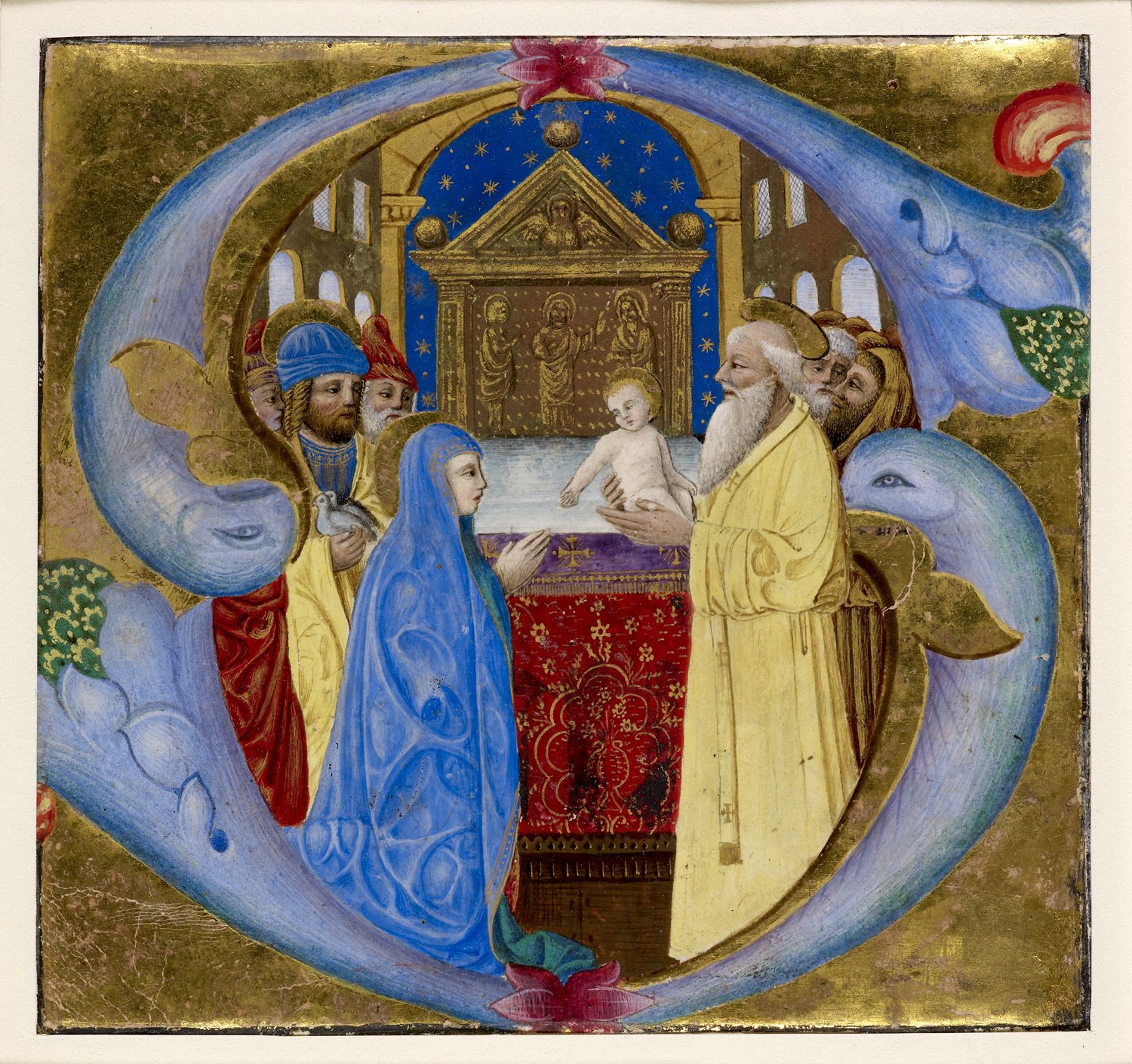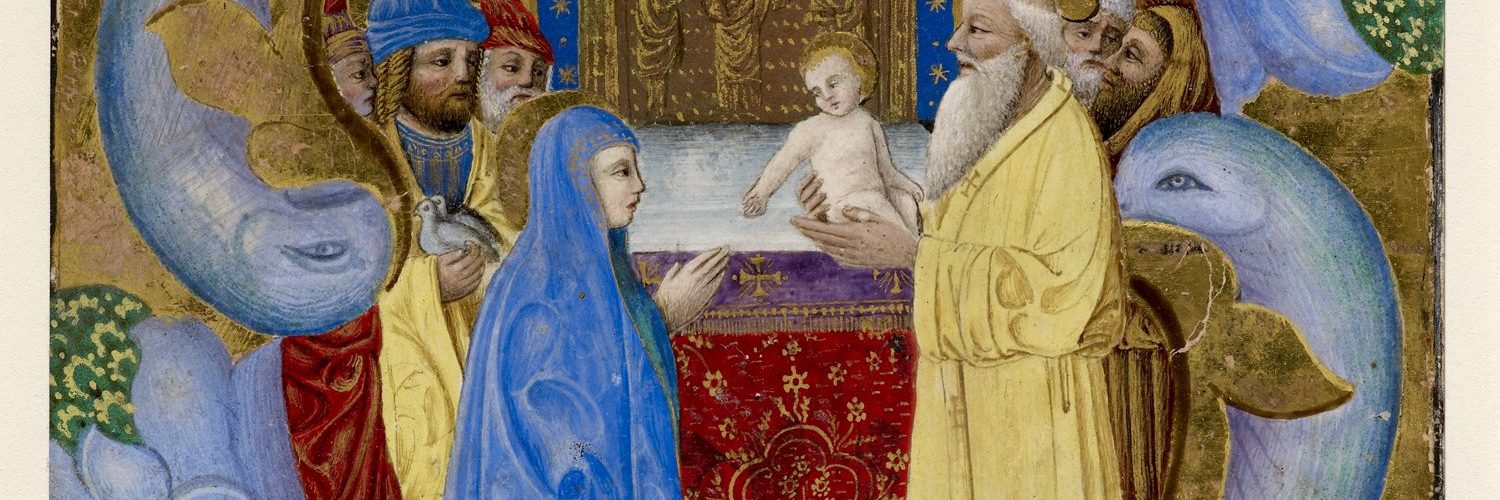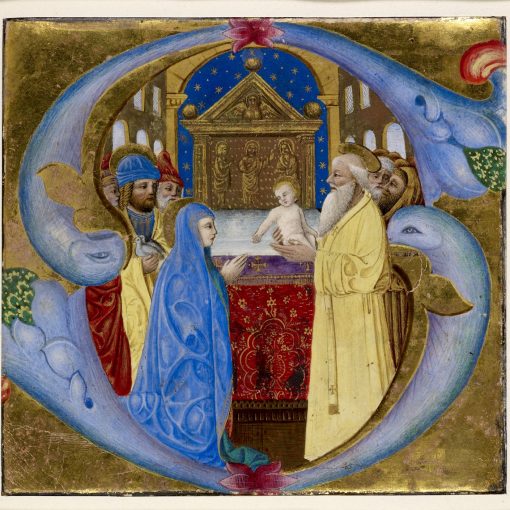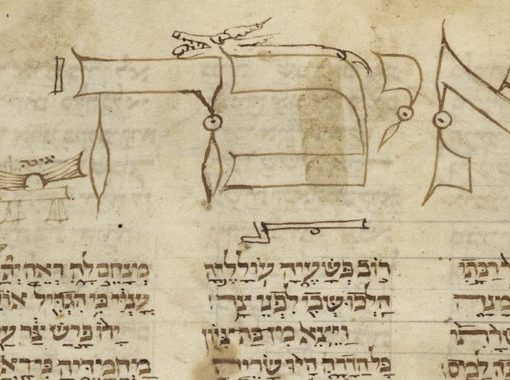This is an entry in the “Acrostic Contemplations.”
Nunc Dimittis is the Latin title given to the prayer or poem uttered by Simeon upon seeing Jesus. In the Vulgate it begins, Nunc dimittis servum tuum, Domine. “Now you are dismissing your servant in peace, Lord.” Simeon was a faithful man whom God had promised would not die before he saw the one who would deliver God’s people.

Now there was a man in Jerusalem whose name was Simeon; this man was righteous and devout, looking forward to the consolation of Israel, and the Holy Spirit rested on him. It had been revealed to him by the Holy Spirit that he would not see death before he had seen the Lord’s Messiah. Guided by the Spirit, Simeon came into the temple; and when the parents brought in the child Jesus, to do for him what was customary under the law, Simeon took him in his arms and praised God, saying,
“Master, now you are dismissing your servant in peace,
according to your word;
for my eyes have seen your salvation,
which you have prepared in the presence of all peoples,
a light for revelation to the Gentiles
and for glory to your people Israel.” (Luke 2:25–32)
A form of this prayer is recited as a canticle at Compline in many Christian traditions. Compline is the final service of the day and in cloistered communities often followed by complete silence until the next day. The focus of the service and prayer is the contemplation of our ultimate peace in God. Considering the prayers were developed in a context in which waking the next day was never taken for granted, it is understandable that a refrain similar to the following was often added, “Guide us waking, O Lord, and guard us sleeping; that awake we may watch with Christ, and asleep we may rest in peace.”
Reportedly, after GK Chesterton shared with friends that he had finally completed his autobiography, one of them said, “nunc dimmittis.” Those present took it as a portent and indeed GKC died a few months later. 1Defiant Joy by Kevin Belmonte. This was an audio version, so I do not have a precise citation. The work had been concluded, what more was there to do, but pray to be allowed to depart in peace?
The contemplation of death is something that has been with me most of my life. Family members have always struggled with health issues and I witnessed my grandfather, whom we were very close to both in proximity and relationship, be eaten away by emphysema and die when I was in high school. It is not surprising then that, when I was introduced to Compline, I found it one of the most comforting services in all of the Book of Common Prayer. “Guide us waking, O Lord, and guard us sleeping….”
Fortunately and appropriately, most of us, even those who have had such an early exposure to death, do not think all the time about the coming time of death. That is healthy and good. Yet it is also healthy to spend some time contemplating our mortality. Momento mori, from the Latin “remember that you will die,” often refers to the practice from the Medieval to the Victorian period of keeping some item, such as a carving or a coin with a skull, that would serve as a reminder to one that mortality is our companion and inevitable end in this world. Yet such tokens also reminded us that this life is just a prelude to life eternal.
Today, where so much of our lifestyle is focused on “living in the moment” and “taking life for all its worth,” this can all seem very morbid, too focused upon death. But that is because there is now the prevailing assumption that this is all there is. If we believe that there is no world to come, if we do not believe in the resurrection, not just of Christ, but of all humanity, and the ultimate and eternal establishment of God’s Kingdom, then yes, “you only live once” and “life is short so you might as well buy those shoes.” The Christian faith is that the resurrection transformed this death into a mortal sleep, from which we will awake into eternal life with Christ.
Reflection upon our mortality should lead us to consider our immortality. It should inspire us to seek God’s will to be done here and now, “on earth as it is in Heaven,” even while reassuring us that this world is a part of the next, it is not all there is, but merely a foretaste of what is to come. “For this perishable body must put on imperishability, and this mortal body must put on immortality.”
When may we depart in peace? What must we see, what must we do before we may enter into that rest? May the Spirit of God guide us so that we will know and we too may say, “Now, Lord, you are dismissing your servant in peace, according to your word; for my eyes have seen your salvation.” Amen.
- 1Defiant Joy by Kevin Belmonte. This was an audio version, so I do not have a precise citation.






One thought on “N is for “Nunc Dimittis””